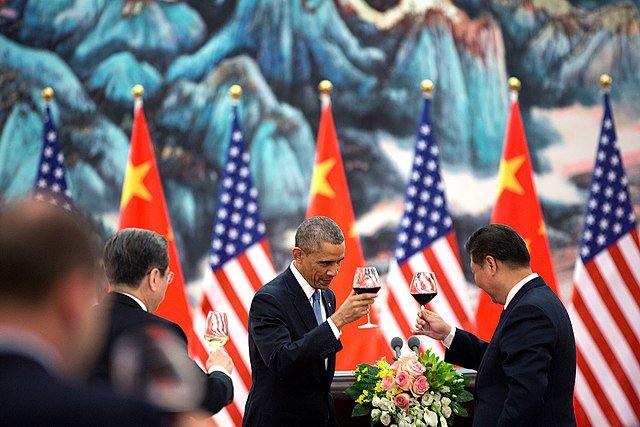Walking a Tightrope: The Complex Future of US-China Relations
Photo courtesy of The White House
On February 4th, a Chinese-operated surveillance balloon was discovered just off the southeastern coast of the USA and shot down by the Air Force. The balloon is suspected to be a spy craft, but according to Beijing it was nothing more than a weather-monitoring device. In response, US secretary of state Anthony Blinken has postponed his visit to China- a visit that would have been the first of its kind in five years
Whether or not the balloon was indeed placidly tracking nimbus clouds over Montana is anyone’s guess, but one thing is certain: US-China relations have once again frozen over after multiple thawing attempts. Blinken’s visit to China was meant to be the first one under the Biden administration, and would have acted as a follow-up to the relatively amicable meeting between Biden and President Xi Jinping in Indonesia last November. For now, that ship has sailed.
Tensions between the two nations have been high throughout the course of history, but in recent years the lack of friendship between the world’s two largest economies has been alarming. Both countries have been locked in a trade war since 2018, with massive tariffs being imposed on each other’s goods. Taiwan is also a point of contention, with the USA vowing to defend the island should China attempt to invade it. As a result, US House Speaker Nancy Pelosi’s visits to Taiwan last summer sparked angry threats from Beijing, who condemned her for ‘playing with fire’. Adding to this is the fact that China is aiding Russia in their war with Ukraine by shipping military and commercial equipment to them. Throw in their decade-long dispute regarding China’s encroachment on several islands in the South China Sea, and one has an idea of how fraught their relations are.
But will there be any severe economic fallout? The term ‘trade war’ might sound like trade between the two countries is on the decline, and some might suppose a global recession is on the horizon—but this is far from the case. Economic sanctions haven’t curbed the growth in trade between the two countries, and in fact, trade between China and the US is now higher than it’s ever been.
The truth is that China is the world’s manufacturing hub, and the US in turn exports manufacturing tools—among many other things—to China. This means that, despite deteriorating diplomatic ties, the economies of the two countries are still knitted together, and this will likely be the case for a good while.
There’s also the issue concerning China’s various human rights violations, against which the US has been the world’s most outspoken critic. This includes a diplomatic boycott of the 2022 Beijing Winter Olympics due to the ongoing Uyghur genocide in Xinjiang. They have also repeatedly condemned China’s increasingly aggressive behaviour in the South China Sea, which includes its crackdown on Hong Kong’s autonomy, claiming certain groups of islands for its own, and vowing to take back Taiwan with military force if need be. But will strong actions ever follow strong words? The US is aware that any substantial action against China will further aggravate it. Sanctions have been the go-to for expressing disapproval, but if the statistics are any evidence, they have an effect in name only. Atrocities, it would seem, are still occurring.
Then comes the uneasy question as to whether martial conflict is brewing. Most experts say there is no immediate risk of war; the economies of the US and China are so intertwined that to destroy one would be to destroy both. For now, China is also preoccupied with rebuilding its economy after three long years of Covid—and quelling the discontent that has arisen from its draconian policies. The Biden administration is ‘determined to avoid conflict’, stating that the US will continue competing with China but does not want hostilities to escalate out of control.
But that doesn’t mean storm clouds aren’t gathering. The AUKUS pact was formed in 2021 by Australia, the UK, and the US, aiming to counter the threat of Beijing. Meanwhile, China has been recruiting around thirty British ex-military pilots to train its military personnel.
Both countries clearly have competing interests, and these show very little chance of coexisting. China wants to expand; the US wants to maintain its position as a global superpower. How long until the already worn-out veneer of diplomacy slips for good? How long until we exit this stage of limbo, for better or for worse? As far as we know, probably a long time. For now, the world can rest uneasy.

